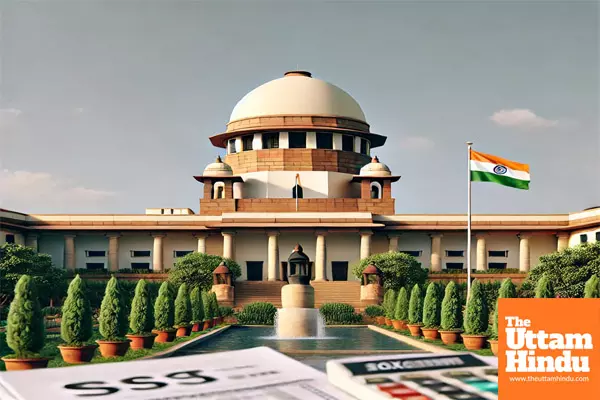
No Domicile Reservations in Medical Admissions, Supreme Court Rules

New Delhi (The Uttam Hindu): The Supreme Court has delivered a significant ruling regarding the reservation system for admissions in medical colleges. In its judgment, the court stated that students will not be granted reservation benefits based on domicile for postgraduate (PG) courses in medical colleges. The court has declared this practice unconstitutional.
A bench of three judges of the Supreme Court observed, "We are all residents of India. There is no concept of state or provincial domicile. There is only one domicile, and that is being a resident of India." The bench further clarified that under Article 19 of the Constitution, every citizen has the right to reside, trade, and pursue any profession anywhere in India. This right also applies to admission to educational institutions, and any domicile-based restrictions at the PG level violate this fundamental principle.
The court acknowledged that domicile-based reservations may be valid for undergraduate (MBBS) admissions to some extent but cannot be applied to PG medical courses. The court emphasized that expertise and skills are crucial at the PG level. Justice Dhulia, reflecting on the decision, remarked, "Since there is a greater need for specialist doctors in PG medical courses, domicile-based reservations at this level would violate Article 14 of the Constitution."
However, the court provided relief to students currently enrolled in PG medical courses under domicile-based reservations or those who have already completed their PG education. The bench clarified, "This decision will affect future admissions, but it will not impact students who are currently pursuing PG courses or those who have already completed them."
This case originated in 2019 in the matter of Dr. Tanvi Behl vs. Shreyi Goyal and others, which was an appeal against the Punjab and Haryana High Court's decision. The High Court had declared domicile-based reservations in PG medical admissions unconstitutional. Given the significance of the case, the Supreme Court decided to refer it to a larger bench. The three-judge bench has now issued the final ruling on the matter.

